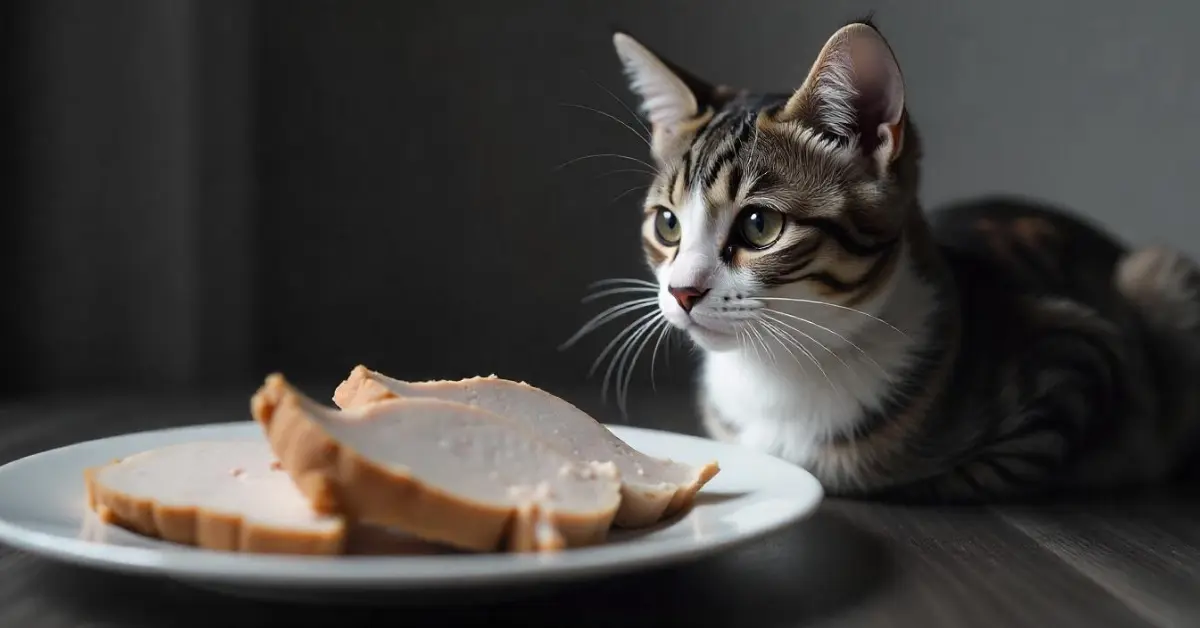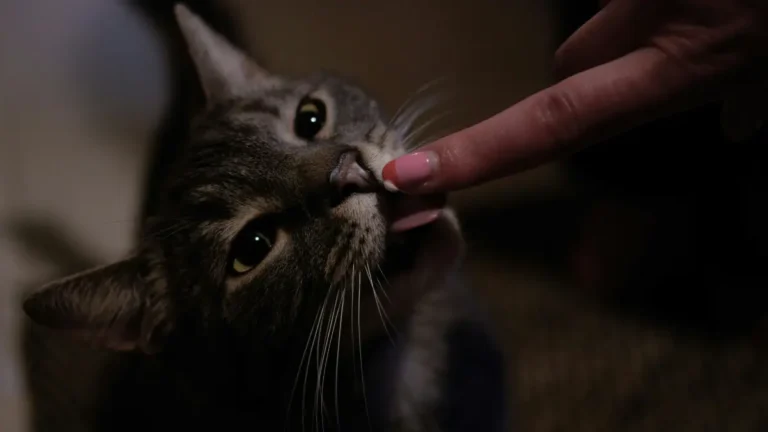Turkey is a popular protein enjoyed by many during festive seasons and everyday meals. But if you’re a cat owner, you may wonder: can cats eat turkey? The short answer is yes, turkey can be safe and nutritious for cats when prepared and served correctly. However, there are important factors to consider, such as the type of turkey, portion size, and potential risks. In this article, we’ll dive into everything you need to know about feeding turkey to your feline friend.
Table of Contents
Is Turkey Safe for Cats?
Yes, turkey is generally safe for cats when prepared properly. It is a lean source of protein that supports muscle development and overall health. Protein is essential in a cat’s diet as they are obligate carnivores, meaning they rely heavily on animal-based proteins.
However, not all turkey is created equal. The safety and health benefits depend on how the turkey is prepared and served.
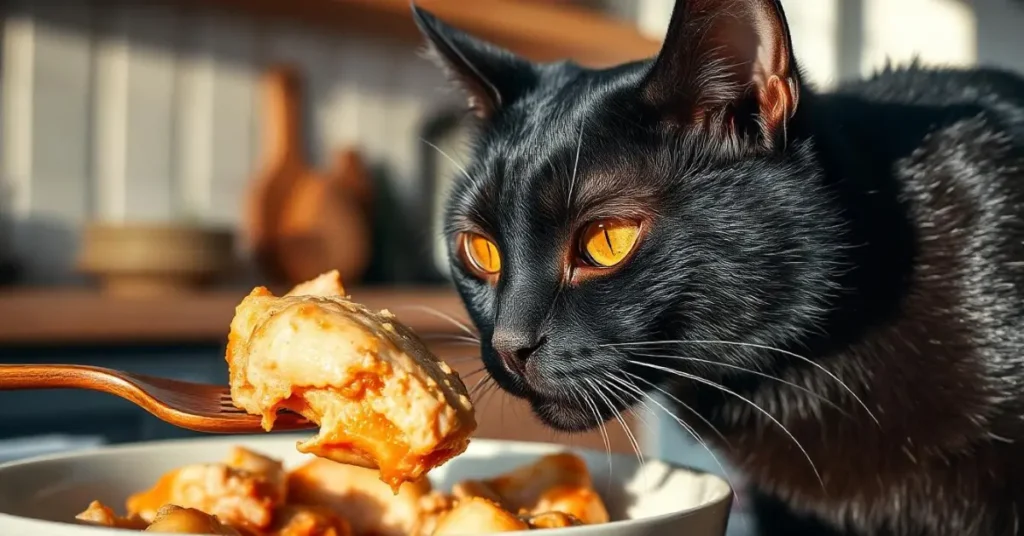
Types of Turkey: What’s Safe and What’s Not
1. Cooked Turkey
Cooked turkey is the safest option for cats. Opt for plain, unseasoned turkey, as seasonings like garlic, onion, or excessive salt can be toxic to cats. Baking, boiling, or grilling are great cooking methods as long as you avoid adding oils, butter, or spices.
2. Raw Turkey
Feeding raw turkey to cats is a topic with varied opinions. Advocates for raw diets argue that feeding cats raw meat can enhance their coat condition and increase energy levels. They believe raw diets closely mimic what cats would eat in the wild, potentially leading to better digestive health.
However, it’s essential to weigh these potential benefits against the risks. Raw turkey can carry harmful bacteria, such as salmonella or listeria, which pose significant health threats to both pets and humans. Proper handling and sourcing from reputable suppliers are crucial to minimizing these risks. Consulting with a veterinarian can help ensure that a raw diet meets your cat’s nutritional needs without compromising their safety.
3. Smoked or Processed Turkey
Avoid smoked or processed turkey, such as deli meats or turkey sausages. These often contain high levels of sodium, preservatives, and spices, which can harm your cat’s health.
4. Turkey Bones
Never feed your cat turkey bones. Cooked bones can splinter, causing choking or gastrointestinal injuries. Even raw bones pose risks, such as dental fractures or digestive blockages.
Benefits of Feeding Turkey to Cats
Including turkey in your cat’s diet can offer several benefits when done right:
Easily Digestible: For cats with sensitive stomachs, plain turkey is often easier to digest than other meats.
High-Quality Protein: Turkey provides essential amino acids that support muscle growth and repair.
Low in Fat: Lean cuts of turkey are a healthy choice for weight management.
Rich in Nutrients: Turkey contains vitamins B6 and B12, selenium, and zinc, which contribute to your cat’s overall health.
Organic and Free-Range Options: Choosing organic or free-range turkey can provide peace of mind for cat owners who wish to avoid additives or hormones found in some conventional meats. While the nutritional differences might be slight, these options are often seen as a healthier, more natural choice, which aligns with a holistic feeding approach for pets.
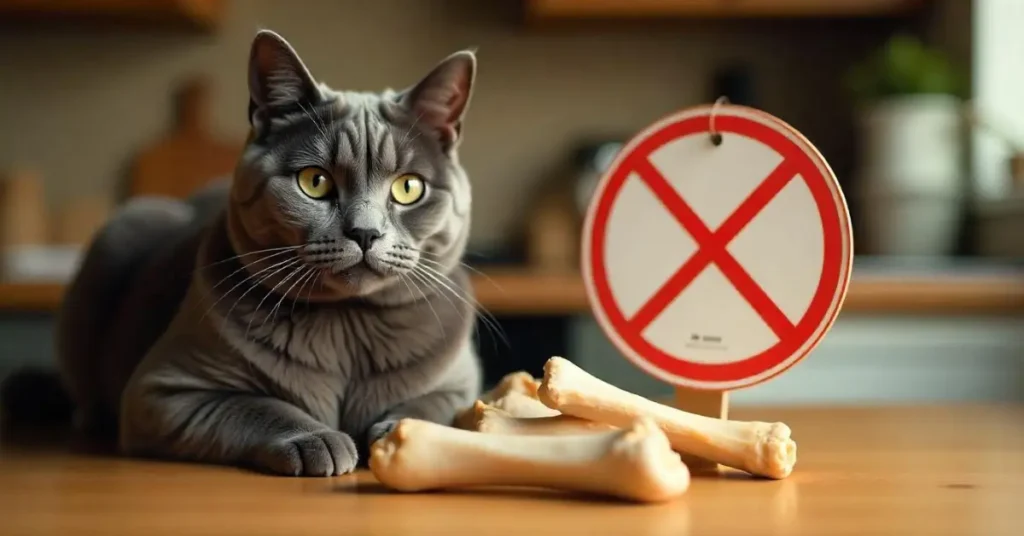
Risks of Feeding Turkey to Cats
Despite its benefits, feeding turkey to cats comes with potential risks:
- Toxic Seasonings : Seasonings such as garlic, onion, and excessive salt are extremely harmful to cats. Garlic and onion contain thiosulfate, which can damage red blood cells, leading to anemia. Excessive salt can result in sodium ion poisoning, causing symptoms like vomiting, diarrhea, and even seizures in severe cases.
- Excess Fat and Skin: Turkey skin is high in fat, which can lead to obesity or pancreatitis in cats.
- Contamination: Raw turkey can carry harmful bacteria if not handled properly.
- Choking Hazards: Bones and large chunks of turkey can pose choking risks.
- Food Allergies: While uncommon, some cats may be allergic to turkey. Symptoms of an allergy can include itching, vomiting, or diarrhea. It’s crucial to monitor your cat’s reaction and gradually introduce new foods to catch any adverse reactions early.
How to Prepare Turkey for Cats
Follow these simple steps to safely prepare turkey for your cat:
- Choose Lean Cuts: Opt for boneless, skinless turkey breast for the healthiest option.
- Cook Thoroughly: Bake, boil, or grill the turkey without adding oils, butter, or seasonings.
- Cool Before Serving: Ensure the turkey is cool to avoid burning your cat’s mouth.
- Cut into Small Pieces: Chop the turkey into bite-sized pieces to prevent choking.
- Practice Safe Handling: Wash your hands thoroughly before and after handling raw turkey to prevent cross-contamination.
- Store Properly: Refrigerate leftovers promptly in an airtight container, ensuring the temperature is below 40°F (4°C). Use within 2–3 days for best safety.
- Reheat Safely: If reheating turkey leftovers, ensure it reaches an internal temperature of 165°F (75°C) to kill any bacteria.

Portion Sizes: How Much Turkey Can Cats Eat?
Turkey should be an occasional treat, not a staple in your cat’s diet. Treats, including turkey, should make up no more than 10% of your cat’s daily caloric intake. To ensure your cat receives the right amount, consider their weight when determining portion sizes. As a rule of thumb, offer about one to two small bites of cooked turkey per pound of your cat’s body weight. Observe how your cat responds to this amount and adjust accordingly, ceasing to provide turkey if any adverse reactions occur. Always monitor your cat’s reaction to new foods and discontinue if you notice any adverse effects.
Common Mistakes and Hazards
Relying on Turkey as a Complete Meal : Cats require a balanced diet formulated specifically for their nutritional needs.
Feeding Turkey Bones: Even small bones can cause serious injuries. Always remove bones before serving.
Using Seasoned Turkey: Avoid turkey cooked with salt, garlic, or onions, as these are toxic to cats.
Offering Large Portions: Overfeeding can lead to digestive upset or weight gain.
Feeding Turkey Accompaniments: Be cautious about offering turkey with gravy or stuffing. These often contain harmful ingredients like onions, garlic, herbs, and high amounts of fat or sodium that can be toxic to cats. Avoid serving these sides to ensure your feline’s safety.
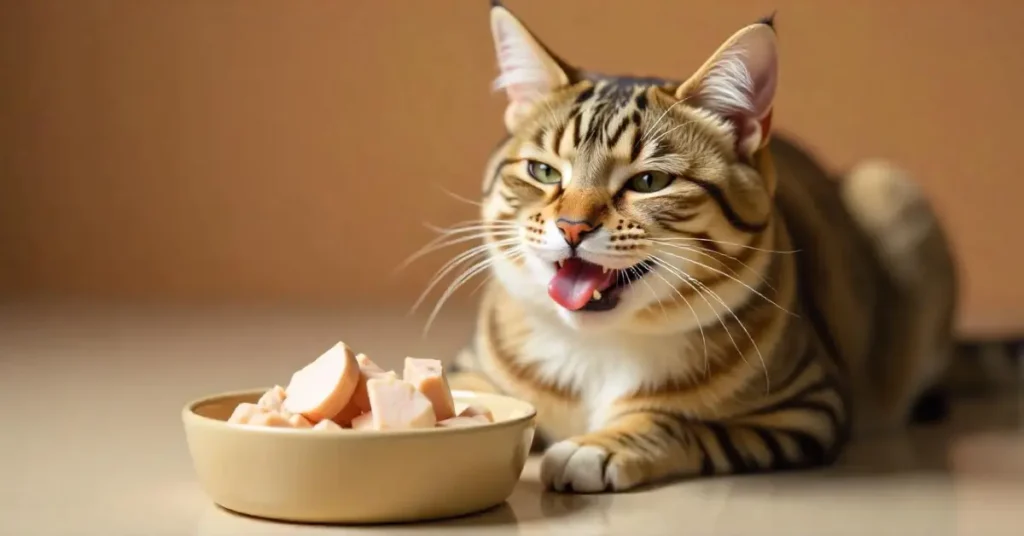
Conclusion: Can Cats Eat Turkey?
Turkey can be a safe and healthy treat for cats when prepared properly. Stick to plain, cooked turkey in small portions and avoid seasoned or processed options. Always remove bones and fatty skin to minimize risks. While turkey offers several nutritional benefits, it should complement your cat’s regular diet, not replace it.
Pro Tip: Before introducing turkey or any new food, consult your veterinarian to ensure it aligns with your cat’s dietary needs.
By following these guidelines, you can safely share a little turkey with your feline friend and keep them happy and healthy!

